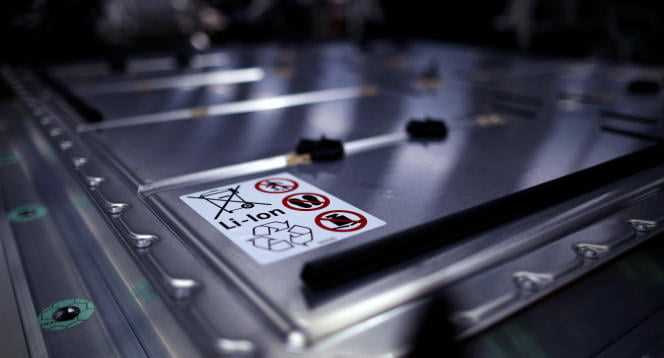On knew that the automotive industry’s energy transition was not an alley of roses, but it is now turning into a way of the cross. After more than a year of reduced production caused by the shortage of electronic chips, now it’s the batteries that threaten to run out. For a year, the price of their components has been skyrocketing. Starting with the most important, lithium. In 2021, the price of lithium carbonate sold in China increased fivefold and has risen another 13% since the beginning of January. Cobalt grew by 100% in 2021 and nickel by 15%.
This spectacular surge has its source in the boom in sales of electric cars. Constrained by environmental standards which have programmed, at least in Europe, the extinction of the thermal engine in 2035, manufacturers are working hard. Volkswagen predicts that, in eight years, half of its cars sold will be electric. In 2021, when the shortage of chips caused the European car market to fall sharply, sales of this type of vehicle jumped by 64%.
Shortage of workers
This forced conversion has been made possible by the continuous increase in the performance of the batteries and the reduction in their cost. In ten years, the price per kilowatt hour has been divided by ten. It will rise again in 2022. According to analysts at Standard & Poors, lithium supply will be a maximum of 636,000 tonnes for a demand of 641,000 tonnes. Conclusion, not everyone will be served. The Covid-19, the Olympics in China and the shortage of workers in the mines of Australia add to the uncertainty.
So manufacturers become traders. They buy ore production lots. The Chinese BYD, also a battery producer, has just signed one this Wednesday, January 12 in Chile, while Tesla has concluded agreements with miners in Nevada. For its part, Volkswagen has reserved tonnages of cobalt from the Belgian miner Umicore. This sudden rush from the automotive industry to raw materials explains the mobilization of the French government, which announced this week that it had released one billion euros from its recovery plan to secure the supply of strategic metals.
The semiconductor crisis, which is still not over, has had the effect of reducing car sales and increasing their prices. The tension on raw materials in batteries will reinforce this trend. The next world is currently one of scarcity and inflation.
